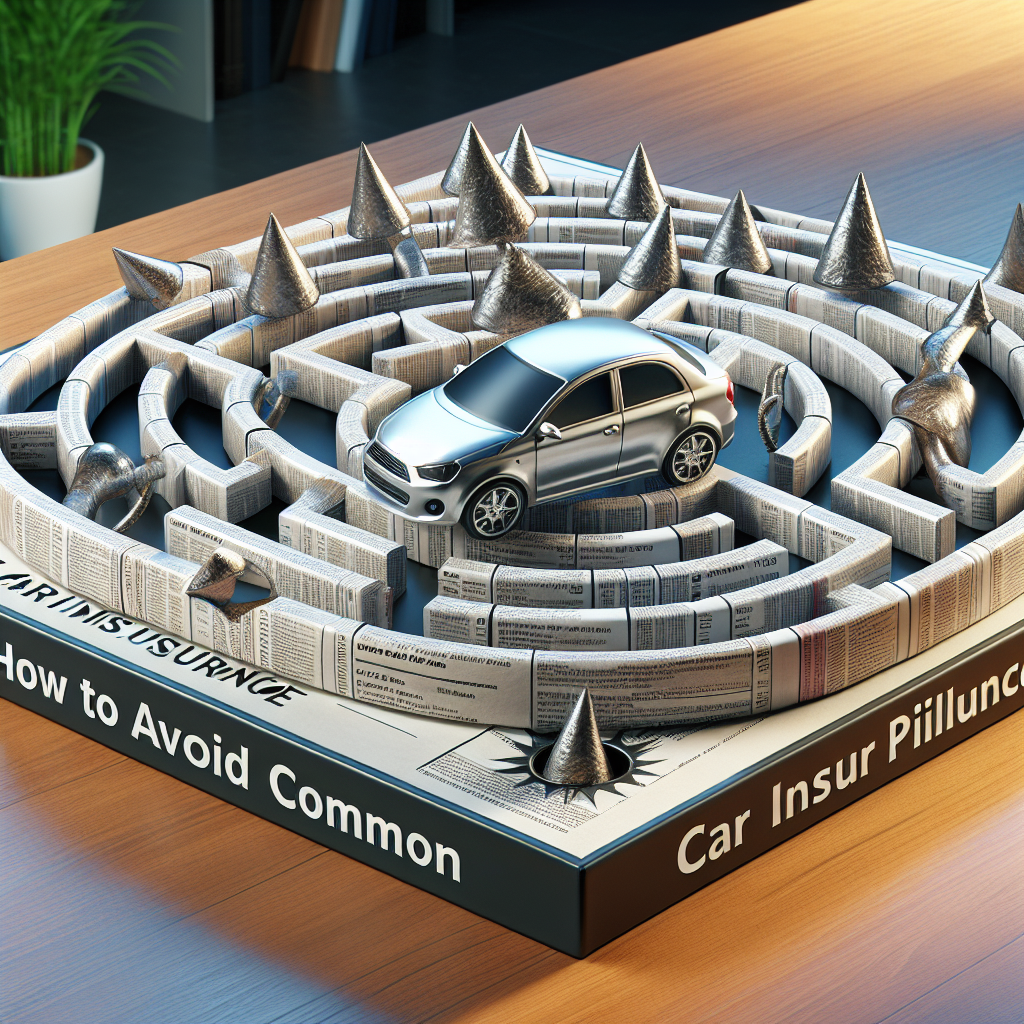When it comes to protecting your vehicle, car insurance is not just a legal requirement; it’s a crucial aspect of responsible car ownership. However, many drivers find themselves navigating a maze of policies, terms, and options that can lead to costly mistakes. In this article, we will explore how to avoid common car insurance pitfalls, helping you make informed choices that protect both your wallet and your peace of mind.
Understanding the Basics of Car Insurance
What Is Car Insurance?
Car insurance is a contract between you and an insurance company that provides financial protection in the event of accidents, theft, or damage to your vehicle. Policies vary widely in terms of coverage, deductibles, and premium costs, making it essential to understand your options.
The Different Types of Coverage
- Liability Coverage: This is mandatory in most states and covers damages to another person’s vehicle or injury if you are at fault in an accident.
- Collision Coverage: This helps pay for damage to your own vehicle after an accident, regardless of fault.
- Comprehensive Coverage: This covers damages from non-collision incidents, such as theft, vandalism, or natural disasters.
- Uninsured/Underinsured Motorist Coverage: This provides protection if you’re in an accident with a driver who lacks sufficient insurance.
Understanding these types of coverage is the first step to ensuring you avoid common pitfalls when selecting a policy.
Common Car Insurance Pitfalls to Avoid
1. Focusing Solely on Price
Humanize the Content: It’s tempting to choose the cheapest option without considering the implications. Think of selecting car insurance like shopping for a pair of shoes; while a lower price may seem appealing, you also want comfort and durability.
Pitfall: Opting for a low premium can result in inadequate coverage that leaves you vulnerable in an accident. Always analyze what is included in the policy rather than just the price tag.
2. Neglecting to Compare Quotes
When was the last time you shopped around for car insurance? Believe it or not, this simple step can save you hundreds.
Tip: Use online comparison tools to view quotes from different insurers. This not only ensures you get the best price but gives you a clearer picture of what’s available.
3. Ignoring Discounts
Many drivers are unaware of the variety of discounts available, which can significantly reduce their premiums.
Potential Discounts Include:
- Multi-policy discounts for bundling home and auto insurance
- Safe driver discounts for maintaining a clean driving record
- Discounts for low mileage or for being a student with good grades
Human Touch: A conversation with an insurance agent can uncover potential savings you might miss online. Don’t hesitate to ask about discounts you might qualify for!
4. Underestimating Coverage Needs
Many drivers make the mistake of underinsuring their vehicles, thinking that state minimums are enough.
Consider Your Situation: Think about factors like:
- The age and condition of your vehicle
- Your driving habits and average mileage
- Your financial situation — can you afford a higher deductible?
In many cases, it’s wise to invest in broader coverage to safeguard your financial future.
5. Failing to Review Your Policy Regularly
Your life circumstances can change; perhaps you’ve moved, switched jobs, or added a new vehicle to your household.
Life Events Matter: Each of these changes can impact your insurance requirements.
Checklist: Schedule an annual review of your policy with your agent to ensure that it’s still adequate for your current needs.
Tips for Making Informed Decisions
1. Read the Fine Print
Take the time to thoroughly read and understand your policy documents. Pay attention to:
- Exclusions
- Limits of liability
- The claims process
Pro Tip: Don’t hesitate to ask questions if something isn’t clear. Understanding your policy is crucial for avoiding pitfalls.
2. Consider Your Deductible
Your deductible is the amount you’ll pay out of pocket before your insurance kicks in.
Key Consideration: A higher deductible may lower your premium, but it can also mean more substantial financial strain in case of an accident. Choose a deductible that you can comfortably handle.
3. Stay Informed About Changes in Insurance Law
Insurance laws vary by state and can change frequently. It pays to stay informed to ensure compliance and maintain appropriate levels of coverage.
Conclusion: Make Informed Choices
Navigating the world of car insurance doesn’t have to be overwhelming. By understanding your coverage options, avoiding common pitfalls, and staying informed, you can make choices that protect both yourself and your wallet. Remember, the right coverage is not just about fulfilling a requirement; it’s about peace of mind, knowing you’re protected when it matters most.
Call to Action
Take the first step today: review your current policy, shop around for quotes, and speak with an insurance advisor to ensure that you are making well-informed decisions for your car insurance needs. Your future self will thank you!


